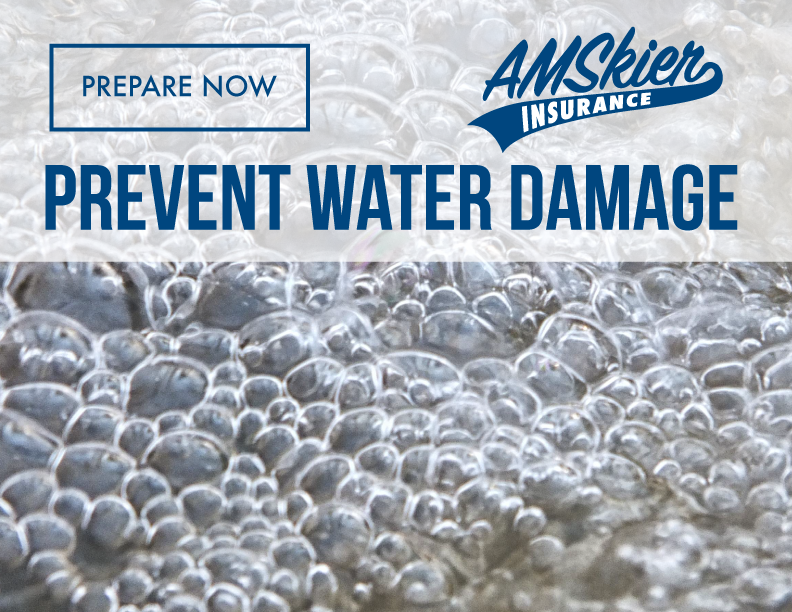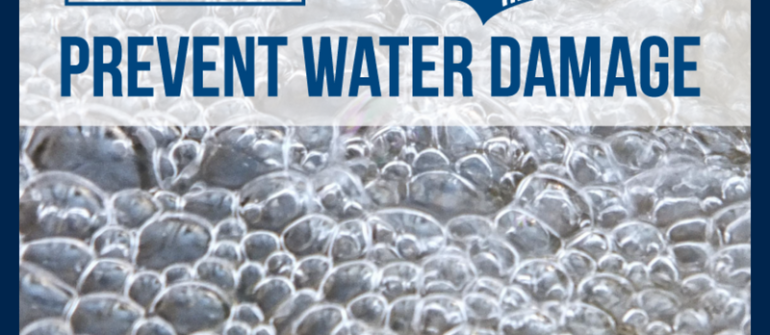
According to the Insurance Industry Institute, water damage accounts for billions of dollars in losses to homeowners and renters each year. It is also responsible for about 25 percent of all property insurance claims. In fact, our claims data suggests that water is ten times more likely to damage your home than fire.
Fortunately, there are steps that you can take to help prevent water damage from appliances, and protect your home. It is helpful to understand some of the common causes of water damage, which include leaky baseboard heating, air conditioning condensation drains, and failed water heaters, washing machine hoses and plumbing.
These household appliances do not always offer warning signs until the damage has already occurred. That is why it is important to check them regularly. The simple steps below can help you protect your home from the most common causes of water damage:
- First, know where the main water supply is located in case of emergency.
- If you will be away from home for an extended period, shut off the water supply and drain the pipes. During the heating season, if your home is heated by an older steam heating system, consult with your heating professional to determine if it is safe to turn off the water supply for your particular heating system. Also, if your home is protected by a fire sprinkler system, do not turn off the water to this system, and maintain sufficient heat to prevent a freeze-up.
- Consider having your air conditioning system inspected regularly by a professional. Check the drain lines annually and clean them if they are clogged.
- Inspect water heaters, showers, tubs, toilets, sinks, and dishwashers annually, and have them repaired if there are any signs of leaks or corrosion. When possible, install water heaters in areas with floor drains to minimize damage if leaks should occur.
- Check caulking around showers, bathtubs, sinks and toilet bases, and make repairs as needed.
- If your refrigerator has an ice machine or water dispenser, the hose between the wall and the refrigerator should be made of braided copper, which has greater cracking and corrosion resistance.
- Check pipes for cracks and leaks. Have pipe damage fixed immediately to prevent more costly repairs in the future.
- Check appliance hoses and plumbing fittings for breakage, crimping or bending.
Was This Helpful? Get More Content Like This!
Join Our Broad & Bright Mailing List By Signing Up Below
AMSkier Clients already receive these articles and much more.
#mc_embed_signup{background:#fff; clear:left; font:14px Helvetica,Arial,sans-serif; width:100%;}
/* Add your own MailChimp form style overrides in your site stylesheet or in this style block.
We recommend moving this block and the preceding CSS link to the HEAD of your HTML file. */


